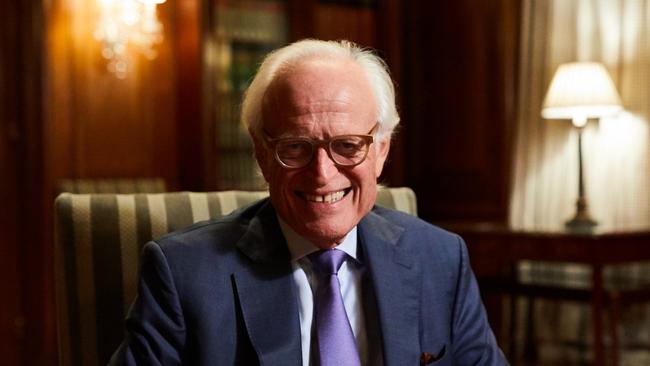Australia’s warrior for Mid-East peace Martin Indyk dies at 75
Barack Obama made Martin Indyk his ambassador to Israel and his appointment was welcomed by both Jerusalem and the Palestinian Authority.

If Martin Indyk, who died this week in Connecticut, had a flaw, it was that he had too optimistic a view on an Arab hunger for democracy. He despised the terror wrought across the Middle East by monocratic murderers such as Iraq’s Saddam Hussein, and he wished to end it – by US force if necessary.
While George W. Bush is often criticised for a having a naive understanding of the Middle East when committing to war in Iraq in 2003, his was far from an isolated view in Washington. It had only been in 1993 that agents sent by Hussein tried to assassinate his father on a trip to Kuwait.
Indyk’s knowledge of Arab thinking was unique in the US capital, and, while the senior Middle East adviser to President Bill Clinton, he was equally firm about the need to act against Hussein: “(His) is a criminal regime, beyond the pale of international society and, in our judgment, irredeemable.”
The clear-thinking, forthright Australian hoped sanctions would help strangle the Iraqi economy and that moderates would rise up to depose Hussein in a new government “that … complies fully with all UN resolutions”.
Similarly, Indyk’s passion for peace saw him work on Clinton’s generous, imaginative and flexible 2000 two-state solution to achieve peace between Israel, represented by prime minister Ehud Barack, and the Palestinians, represented by Yasser Arafat. Arafat couldn’t say yes, and didn’t want to say no. He just walked away.
Much of that document had been Indyk’s work as he skilfully navigated the labyrinthine land deals and claims over Gaza, the West Bank and East Jerusalem along with an agreement on airspace and jurisdiction over border crossings.
Commanding such a vital role in world events seems an unlikely place for a Sydney University graduate, but not to anyone who worked with Indyk. His academic brilliance, blunt manner and confidence that he could unravel the ancient hatreds of the Middle East and thread them together in a deal that would mean peace between people drove him all his days.
It was an unconventional life. Indyk was born to Polish refugees in London who moved to Sydney when he was a boy, settling in Castlecrag. His younger brother is the literary academic and publisher Ivor. Indyk studied at Sydney University, graduating in 1972 with an economic degree. He moved to Israel for further studies and in 1973 learned what he would call the lesson of his life.
In October 1973, a coalition of Arab states launched another attack on in Israel. The Yom Kippur War lasted 19 days and cost almost 3000 Israeli lives. Indyk was rocked by the war and by the assumption of most Israelis that they were secure. He moved south to the Alumim kibbutz, a transformative experience that almost saw him migrate and stay. (Alumim was subject to a barbaric attack by Hamas terrorists on October 7 in which 17 mostly Thai and Nepalese workers were killed while eight were abducted.)
Indyk decided to return to Canberra to complete a doctorate in international relations at ANU after which he lectured at Macquarie University and worked in the Office of National Assessments as an intelligence analyst. He immigrated to the US in 1982, settling in Washington DC and working for a pro-Israel think tank before being lured to the National Security Council, the president’s own advice group on security and military issues and foreign affairs.
There his direct manner and obvious intellect attracted the attention of Clinton and he became a trusted adviser and good friend. The president twice sent him as the American ambassador to Israel, Indyk becoming the first Jew and first foreign-born ambassador to Jerusalem.
Years later, in an attempt to revive the Clinton peace plans and two-state proposals, President Barack Obama made Indyk his Middle East envoy and his appointment was welcomed by both Israel and the new leadership of the Palestinian Authority.
Along the way he married twice, the second time to Gahl Hodges Burt, a senior assistant of Henry Kissinger with whom he had become close and of whom he wrote acclaimed book Master of The Game: Henry Kissinger and the Art of Middle East Diplomacy.
Indyk thought last year’s attacks on Israel were once again the result of hubris and self-satisfaction – as well as a catastrophic failure of intelligence, and he was a bitter critic of Benjamin Netanyahu, whose “performances” he described as childish. He vehemently opposed expansion of West Bank settlements which he saw as a barrier to peace.
Colin Rubenstein, the executive director of the Australia/Israel & Jewish Affairs Council, said Indyk “made a remarkable contribution to our understanding of, and efforts to resolve conflicts across the Middle East”.
“From the moment he arrived in Washington in the early 1980s, he began to influence the Middle East foreign policy of successive US administrations.
“First, through his impressive work at the American Israel Public Affairs Committee which led him to co-found the Washington Institute for Near East policy in 1985.”
Indyk died, aged 75, in New Fairfield, Connecticut, on July 25, the day Netanyahu addressed the US congress. On a recent visit to Australia he said: “Israel has to pursue peace, not for the Arabs, not for the Palestinians, but for itself … For preserving its status as a Jewish and democratic state, it has an obligation to try to resolve this conflict.”




To join the conversation, please log in. Don't have an account? Register
Join the conversation, you are commenting as Logout